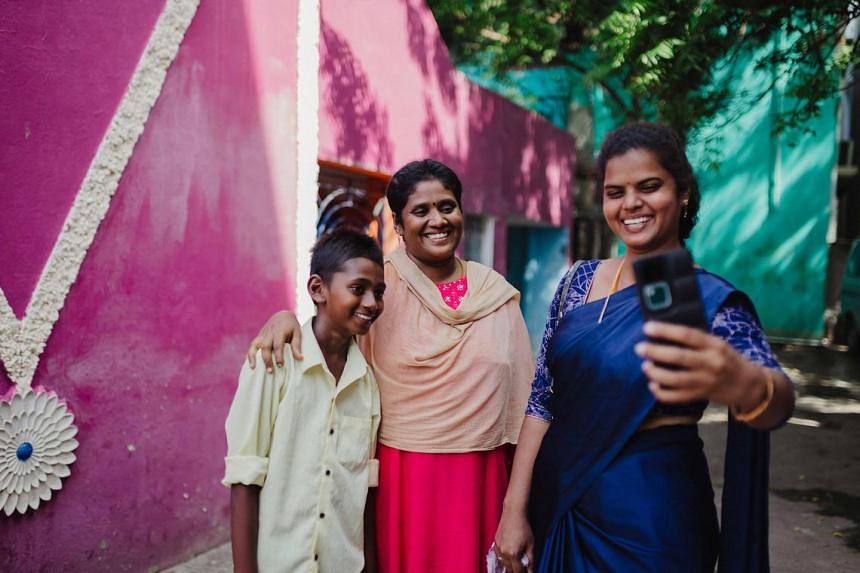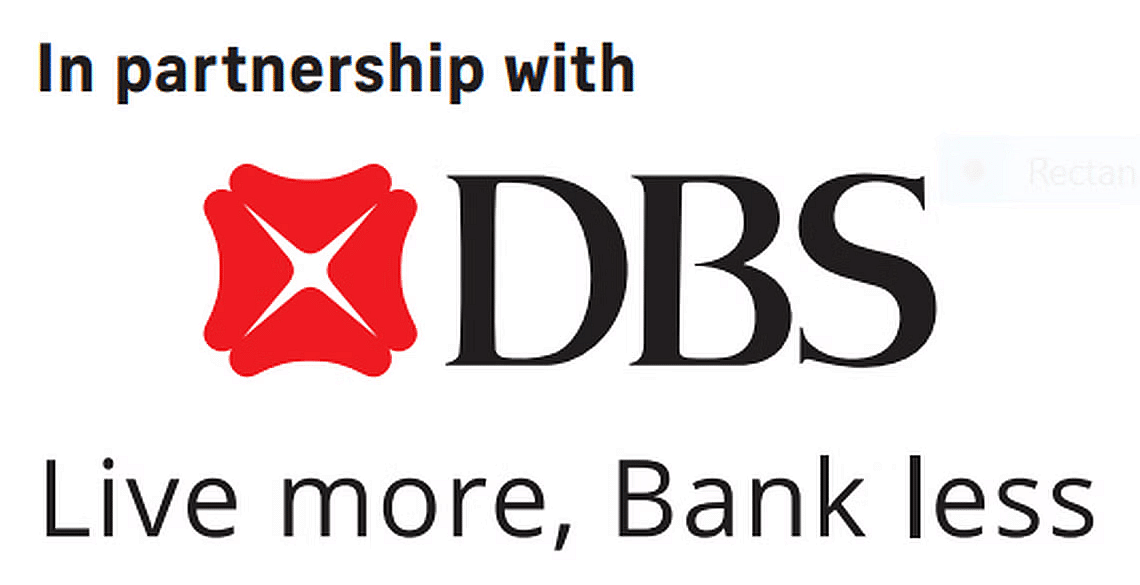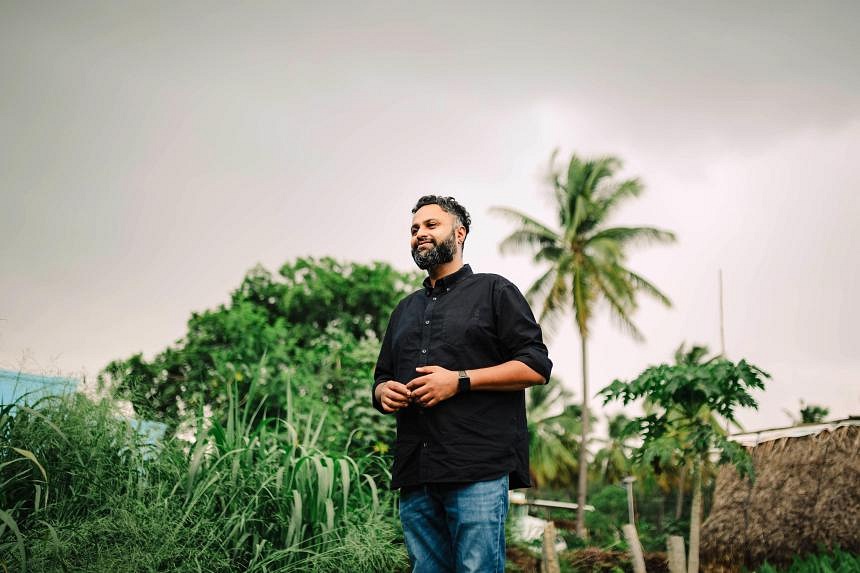At just 35, Mr Aniket Doegar speaks with the wisdom and confidence of someone twice his age.
Named one of Forbes Asia’s 30 Under 30 Social Entrepreneurs in 2019, he is the co-founder and chief executive of Haqdarshak, an Indian start-up that has become a lifeline for millions.
Launched in 2016, it is a mobile technology platform that helps citizens and businesses locate and apply to government schemes and services that can help them. Since its inception, it has worked with more than 6.5 million families across 25 states in India to access the welfare programmes they need.
Mr Doeger’s motivation for founding Haqdarshak – meaning “a guide who shows you your rights” – comes from a deep-seated loathing of inequity and injustice.
“I’m not a philanthropist,” he tells The Sunday Times during a recent visit to a small village in Bangalore. “I’m just saying there’s a constitutional right for citizens to access things like insurance, scholarships, and pensions. Yet, no one seems to know how to get them.”
Indeed, research by Haqdarshak shows that India has over 20,000 social welfare programmes run by national, state and local governments. But with no centralised hub to guide citizens and micro businesses on what they qualify for and how to apply, many who are eligible miss out. Low application rates mean billions of dollars in allocated funds go unspent.
Mr Doeger, who says he lives out of suitcases and on couches because he is on the road so much, did not set out to become a social entrepreneur. He had dreams of earning a degree from Harvard or Stanford and making the world his oyster.
Growing up in Shimla in Himachal Pradesh, he enjoyed a privileged upbringing as the younger of two sons of a businessman and a teacher. After topping both his school and the state in the Indian School Certificate exams (the equivalent of Singapore’s A Levels), he got into the Shri Ram College of Commerce in Delhi, one of India’s top tertiary institutions.
Surrounded by classmates from less privileged backgrounds, he realised that while he had the freedom to explore his passions, many of his peers did not. His social conscience was awakened.
“So I told myself that I should take the opportunity to explore what I wanted in life. I was very clear that I didn’t want a regular job,” says the bachelor, whose brother is a chartered accountant.
A friend alerted him to the Teach For India fellowship, a non-profit aimed at tackling educational inequity in India.
After a month of training, the then 21-year-old was sent to teach Grade Two students in an urban slum in Pune, Maharashtra.
“The first few months were really tough,” he recalls, adding that he thought of quitting. “There were massive learning and behavioural challenges, with some kids coming from abusive families. I had 75 students in a class and taught everything from maths to English.”
The support of fellow teachers and his own stubbornness kept him from throwing in the towel.
“I had a co-teacher who was brilliant at managing the classroom, which gave me the freedom to focus on some of the kids. By the end of Year 1, I managed to send 12 students to scholarship schools, where their fees were paid,” he says proudly, adding that over 100 of his students went on to college.
“That teaching experience transformed my life. At Haqdarshak, we might have reached millions of families, but getting those 100 students to college will always be my biggest achievement.”
The “tangible impact” of changing the lives of his students – some of whom lived in 200 sq ft homes with 16 other people and no running water – fuelled him with “dopamine”.
He spent the next two years working in various social and non-profit organisations in different parts of the country.

Over and over, he encountered the common refrain that low-income families were unaware of the welfare programmes available to them. “It just seemed unfair that they are already way behind and you are pushing them even back further with this kind of information asymmetry.”
This realisation led him to the idea of a centralised hub of information: Haqdarshak. Despite facing rejections from several organisations he approached with the idea, Mr Doeger never wavered from his conviction.
With US$200,000 ($264,000) raised from investors, the social enterprise launched in 2016 during the early days of Startup India, when the government threw its backing behind new ventures. Still, developing the platform was no easy task.
“There was no precedent. Neither the government nor the private sector was doing this. We had to set the norms, but we knew our foundation had to be research and technology,” he says.
Candidly, he lets on that Haqdarshak has pivoted more than a dozen times since it started.
“Initially, we thought we’d build an app, and everyone would just download it. That was our inexperience and naivety talking – we didn’t realise that people who had mobile devices weren’t going to download Haqdarshak because, globally, low-income families only download apps or platforms that offer entertainment or fulfil their basic needs.”
Realising this, he and his team decided “the technology didn’t have to be built for the end user but for an agent or representative who’s the community champion”.
In 2018, they shifted their focus to building a network of field agents, mostly women. This approach has been a game-changer. These women entrepreneurs – called Haqdarshaks – go door to door, screening citizens to see what help schemes they might be eligible for. They then assist with the application process, all for a small fee. Not only do they help their communities access benefits, they too become financially independent.
“As of today, we have trained about 40,000 women, with 7,000 actively working in their communities,” Mr Doeger says.
One such woman is Madam Vinnarasi Christhurai Prapu, 32, a former online cosmetics seller and welfare group leader in her Chennai village. After attending a briefing on Haqdarshak’s mission, she signed up as a field agent and now earns more than 10,000 rupees (about $156) a month, nearly double what she used to, working four to six hours a day.
One of her most rewarding experiences was helping her neighbour to secure medical insurance for the elder of her two sons, who had to be hospitalised for a kidney infection. Her neighbour, Madam Prathima Prathap, says: “Without Vinnarasi’s help, I don’t know what we would have done. She helped us apply for a scheme that covered my son’s 15-day hospital stay and treatment.
“Without it, we would have faced a bill of 50,000 rupees, money we simply don’t have,” says the factory worker, 35, who earns 3,000 rupees a month. Her husband makes 500 rupees a day as a rickshaw driver.
Ms Vannarasi says: “My job has also given me a lot of self-respect. If not for this, I would have just been a housewife with kids. Even my husband respects me more now. Before, he never consulted me on anything. Now, he involves me in financial decisions.”
Haqdarshak’s business model also involves working with corporate partners and foundations, including the DBS Foundation.
“The end users – low-income families – pay a very small fee. It’s partners like DBS who pay for them because they’re doing it to build communities,” Mr Doeger explains.
Haqdarshak’s journey with DBS began when it won the 2017 DBS-NUS Social Venture Challenge Asia, a competition that spotlights and supports innovative social enterprises with scalable and sustainable impact across the region. Since then, DBS Foundation has provided support that includes grants and guidance, helping Haqdarshak thrive even during the Covid-19 pandemic.
The bank’s backing has been crucial for one of Haqdarshak’s latest initiatives: the Yojana card. A physical card that stores a citizen’s profile information and links them to financial services, it is designed to boost financial inclusion, helping the unbanked population access essential funds and services with ease. The next thing on the agenda? Financial literacy programmes.
Mr Doeger’s “ambitious, audacious” goal is for Haqdarshak to reach 100 million families in the next three to five years. Reflecting on his journey, he laughs about how his Harvard dreams have come full circle.
“Two years ago, I did a Stanford entrepreneurship course, and earlier this year, I attended Harvard Kennedy School. Haqdarshak has given me so much – the opportunity to wake up every morning feeling charged up and the privilege of seeing lives change in many communities.”



